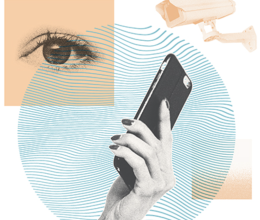If you’ve never heard of Myriad Genetics, now might be the time to become acquainted. Myriad is a molecular diagnostic company, and they own part of your body. More specifically, they own patents on two human genes called BRCA1 and BRCA2, both of which are associated with inherited risk of breast and ovarian cancer. We all have these genes, but people with certain mutations are much more likely to experience cancer in their lifetimes.
Because Myriad owns the patent on these genes, they have the exclusive rights to stop all clinical testing and research done on the genes. Their monopoly on the genes makes it impossible for women to access alternate tests or get a comprehensive second opinion about their results. And it also allows Myriad to charge a high price for its tests.
This is probably the point where you expect a big “April Fools!” announcement. A private company can’t own part of your body and keep other researchers from even looking at it, right? Sadly, gene patenting is no joke. However, if the ACLU is successful in our current legal challenge, it might be a thing of the past.
In just a couple weeks the Supreme Court will hear our lawsuit, Association for Molecular Pathology v. Myriad Genetics, which challenges the basic idea that human genes can be patented. The Court has consistently said that products of nature and laws of nature are not patentable. Myriad claims that they “invented” the genes in question because they “isolated” them and removed them from the rest of the genome. We think that’s ridiculous and we’re hoping the Court agrees. And with roughly 20 percent of human genes already patented, their ruling won’t just affect these two genes, either.
For more information on gene patenting and the ACLU’s upcoming lawsuit, click here.
Who Owns Your Genes?
Related Issues
Related content

Know Your Rights: Electronic Device Searches During Travel
September 3, 2025
I’m Hearing About More Pushback Against Flock, Fueled by Concern...
August 19, 2025
Flock’s Aggressive Expansions Go Far Beyond Simple Driver Surveillance
August 16, 2025
Surveillance Company Flock Now Using AI to Report Us to Police if...
August 7, 2025
AI Could Exacerbate Inequality, Experts Warn
July 23, 2025
2025 Legislative Report: Building a Firewall for Freedom in Maine
July 16, 2025
As AI Gains Power, We Must Push for Guardrails to Protect Civil...
July 2, 2025
Weekly Highlights June 23 - 27
June 28, 2025

